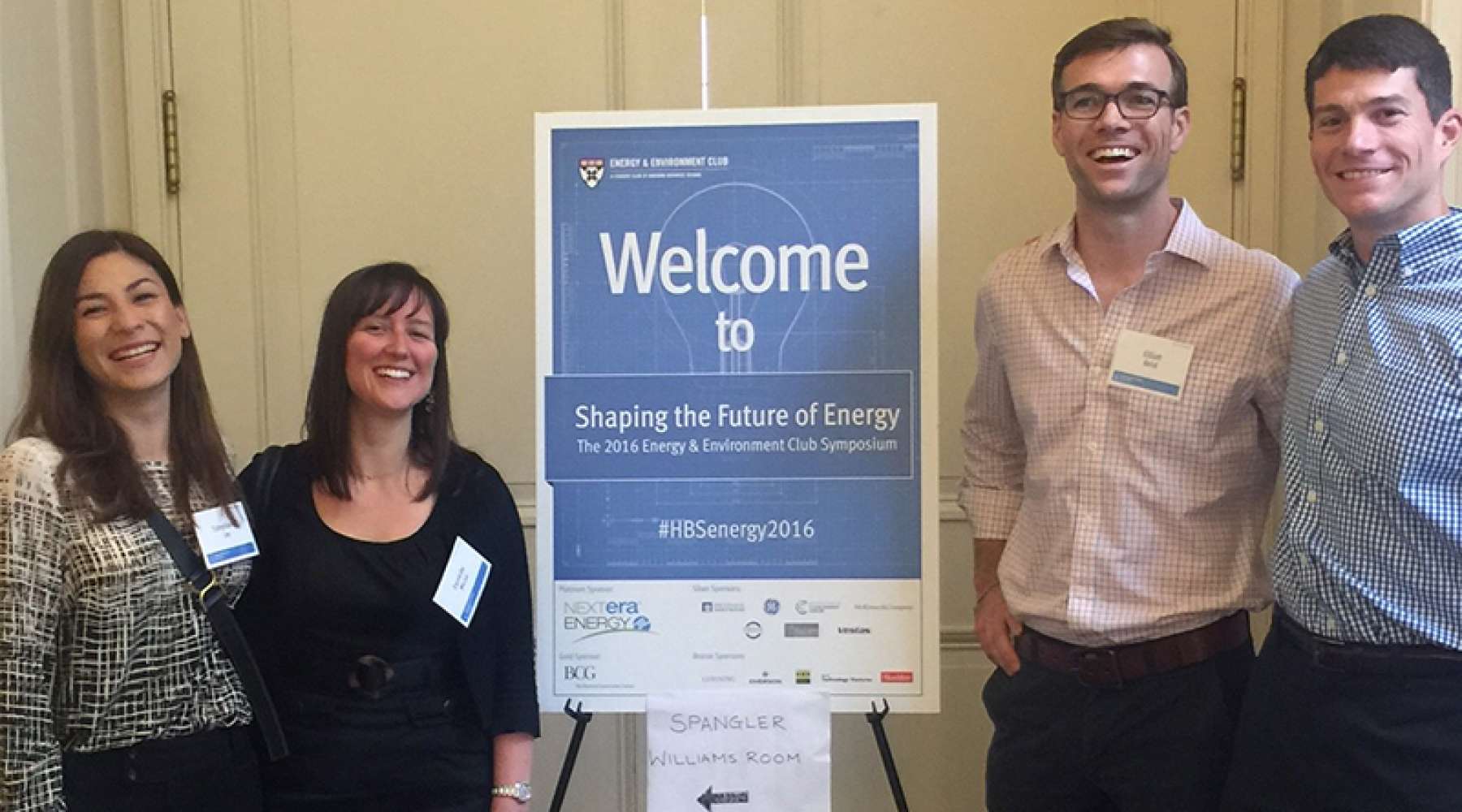
By Estephany Ley Monarrez T’17
It all started with my “Early Riser” wake up sound at the cusp of dawn on a chilly Friday morning. As I lay warm in my bed, I couldn’t help but wonder what the CO2 equivalent impact of my nice heated room was on the environment, how much heat I was using to warm the water in my shower, and how much CO2 I was releasing out of my exhaust by driving down from Hanover to Boston in my fuel-inefficient car. I was particularly aware of my carbon footprint as I picked up two other high-powered women—Danielle Musa, a fellow T’17, and April Salas, the executive director of the Revers Center for Energy at Tuck. We drove past the orange, red, and yellow trees along the highway and at least felt good about carpooling (that totally counts, right?!).
Before I go further, allow me to introduce myself—I am a 27-year-old woman from a small town in Mexico. I care about my country, its people, and the future. I believe energy will be a key resource, particularly in shaping the foundation of any economy around the world. Mexico’s energy reforms have attracted dominant energy players around the world in search of profit, but I, in true millennial fashion, search for social justice and sustainability (profit just happens to be a positive externality when you do the right thing). Enough about me, let’s talk about the visit to Boston.
The conference was broken down in 3 tracks: Energy Finance, Technology & Innovation, and Policy Trends, all from 8:00 am – 5:00 pm. Ironically, the 8 a.m. speaker, Jim Robo, chair and CEO of NextEra Energy, could not make it because he was stranded in Florida right as Hurricane Matthew ran its course from Cape Canaveral to the Orlando area. Talk about evidence of global warming increasing the intensity of hurricanes (you can take it up with Professor Anant Sundaram from our Business & the Environment course for proper citation and documentation of that research). So I chose the Energy Finance track and started with the Innovations in Renewable Energy Finance panel, followed by the Private Equity: Agent of Change in New Energy Landscape, and finally ended with Dealmaking in the Downturn after a carb-filled power lunch and lots of coffee to get through it all.
The first panel had five phenomenal speakers; Jeffrey Berman, CFA, managing director at BlackRock; Bryan Garcia, president and CEO of Connecticut Green Bank; P.J. Lee, co-founder and managing partner at EverStream Capital Management; Tom Murley, chair and senior adviser at Hg Capital; and Russell Tencer, founder and CEO of United Wind. I’m pretty sure I missed some details considering I do not have an engineering background, but after all the technical talk, I took away these five things:
The Private Equity: Agent of Change in New Energy Landscape panel was equally interesting, and included David Greenberg, managing director of Strategic Value Partners; Roger Huang, principal at CPP Investment Board; Eric Liaw, managing director at Blackstone Capital; Gerrit Nicholas, co-founder and managing partner at Orion Energy Partners; and Kate Richard, founder and CEO at Warwick Energy Group.
I was particularly impressed with Kate Richard. She studied history with a focus on post-colonial theory in college and then went on to work for Goldman Sachs in private equity and natural resources IB in NYC, London, and Paris. Then she decided to start Warwick Energy Group and was named one of “20 under 40 in E&P Companies” by Oil and Gas Investor Magazine. No big deal. And no pressure, of course. This panel was special because the speakers focused on giving those of us interested in pursuing a career in energy a few key words of wisdom:
Finally, the third panel: The Promise and Challenges of Renewables in Emerging Markets with Jed Bailey, founder and managing Director of Energy Narrative; Raquel Bierzwinsky, partner at Chadbourne & Parke; James Bowen, co-founder and Partner at Vertex Energia; and Rohit Modi, CEO of Solar Business, Suzlon Energy. I was especially interested in this panel because the speakers shared first-hand accounts of energy projects in places similar to (and including) Mexico, the most beautiful country on earth. Here were the takeaways:
Conclusion: the industry is going down the right path. And hopefully I am too. After the final panel of the day we were invited to enjoy some refreshments at the networking happy hour. I took a chocolate chip oatmeal cookie for the road and contemplated the implications of my learnings on the two-hour drive back.
(Photo above: Estephany Ley Monarrez {left} is joined by a group of fellow Tuckies at the 2016 HBS Energy & Environment Club Symposium.)
The Revers Center for Energy inspires and shapes tomorrow's leaders in energy while engaging today's energy community. It aspires to establish Tuck as the preeminent business school for learning practical leadership in the energy industry.